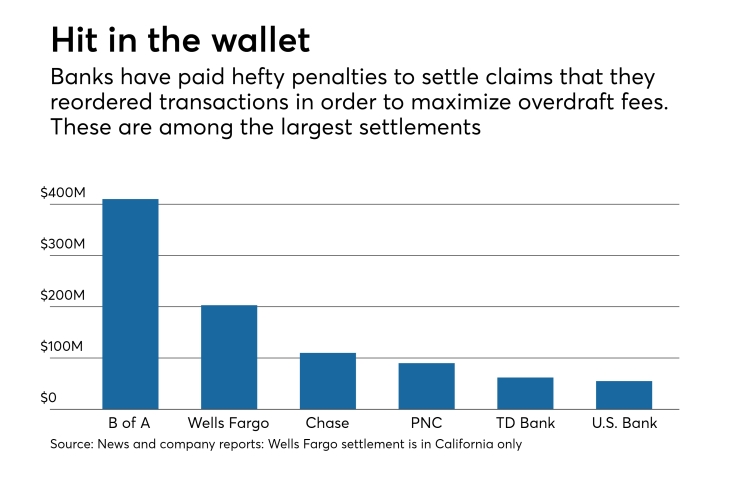Wells Fargo is trying to convince federal appeals judges that a large class-action lawsuit brought by customers who were charged hefty overdraft fees should be thrown out, since the aggrieved consumers agreed upfront to settle any disputes in arbitration.
Meanwhile, many of the scandal-plagued bank’s adversaries have their eye on the court of public opinion, arguing that Wells Fargo’s various misdeeds demonstrate why mandatory arbitration clauses in consumer banking agreements ought to be barred.
This clash over arbitration, which is being waged in dense legal language as well as in the pages of the New York Times, came into clearer focus this week.
In Atlanta on Thursday, lawyers for both Wells Fargo and the customers who are suing the bank presented their arguments to a panel of judges on the 11th Circuit Court of Appeals.
The litigation,

In the early stages of the lawsuit heard Thursday, Wells Fargo voluntarily waived its right to arbitration. But after more customers signed on to the suit, the bank reversed course and sought to invoke that right. The question before the appeals court is essentially whether the bank can change its mind at this late stage.
“Had the bank enforced its contractual rights at the very beginning, we would not be here,” argued Bruce Rogow, a Fort Lauderdale, Fla., lawyer who represented the plaintiffs.
Sonya Winner, a partner at Covington & Burling who is representing Wells Fargo, countered that the San Francisco-based bank reserved its right to invoke arbitration clauses at issue in the class-action suit. “We did not hide the ball. Wells Fargo was always very clear,” she said.
Lawyers for both sides faced tough questions from the appeals court judges, making it difficult to predict which way they might rule.
A spokesman for the $1.9 trillion-asset bank said in an email: “Wells Fargo continues to believe that arbitration is a fair, efficient and effective way for a consumer to pursue a legal claim and resolve a legal dispute.”
But consumer advocates call Wells Fargo the poster child for a pending rule from the Consumer Financial Protection Bureau that would require banks to allow their customers the option of filing class-action lawsuits when disputes arise.
The CFPB rule is scheduled to take effect next month, unless the U.S. Senate passes a resolution overturning it. So left-leaning groups are now making their case to the general public, portraying a vote against the CFPB’s rule as a vote for the reputation-scarred San Francisco bank.
“This Wells Fargo case is yet another demonstration of the harm consumers will suffer if Congress chooses to repeal the CFPB arbitration rule,” Lisa Donner, executive director of Americans for Financial Reform, said in a statement.
Wells Fargo’s brand has been badly damaged by the nearly year-old scandal involving bank accounts and credit cards that were issued without customers’ authorization, as well as a string of more recent revelations involving misconduct in the bank’s auto lending business.
CFPB Director Richard Cordray, who many observers expect to step down soon in order to pave the way for a gubernatorial run in Ohio, is also invoking Wells as an example of why the pending arbitration rule is needed.
Cordray wrote earlier this week in a New York Times op-ed article that “a group lawsuit against Wells Fargo for secretly opening phony bank accounts was blocked by arbitration clauses that pushed individual consumers into closed-door proceedings.”





